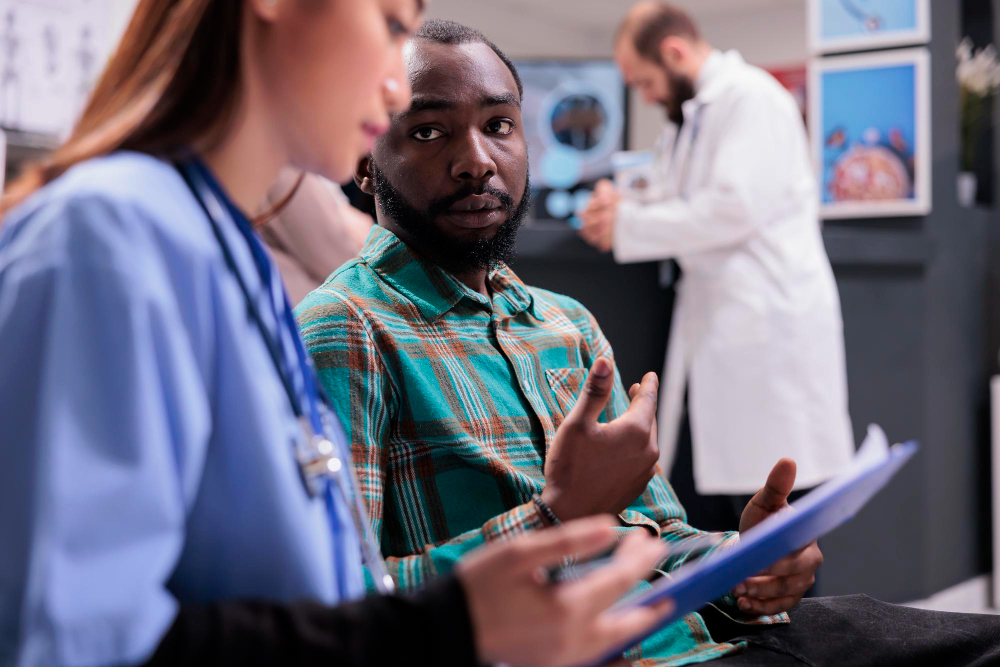What is the best way to keep your colon in optimal health? You are certainly not alone if you’re wondering where to begin when it comes to your colon health. Adequate exercise, good nutrition, and preventive health assessments are some of the ways to maintain your health as you get older. Colorectal cancer is the third most commonly diagnosed cancer, despite being preventable due to the tests that are available for detecting this health concern. Learning about your colon health could be as simple as requesting a consultation at a GI Alliance location near you. Our board-certified gastrointestinal (GI) specialists can help guide you down the path toward a healthier future.
Why are colorectal cancer tests essential?
According to the American Cancer Society, colorectal cancer impacts the lives of nearly 4% of women and men in the U.S., which represents around 1 out of every 25 people. However, colon and rectal cancer can be avoided if it is found in the initial stages.
In the majority of cases, colon cancers arise as a growth (cluster of cells) on the inner wall of the colon (large intestine) or rectum. These growths are referred to as polyps. It is rare to have symptoms when polyps are present, meaning that a colon cancer screening is essential for diagnosing them. When you schedule regular screenings, you’re safeguarding your GI and overall health by getting any growths removed before they become cancerous. It is also important, however, to obtain a colon cancer screening if you’ve experienced one or more of the following:
- Change in bowel habits
- Pain in the abdomen
- Change in stool form or color
- Rectal bleeding
Why is colon cancer such a common disease?
Although there isn’t a clear answer to why colorectal cancer has become more widespread over time, certain factors could affect the development of the disease. Staying educated and being aware of the risk factors associated with colorectal cancer can help you remain vigilant and make better choices for your future health and wellness. A few of the risk factors for colon cancer involve:
- Low-fat and high-fat diet
- Diet lacking vegetables and fruits
- Inadequate amount of exercise
- Family history of colorectal cancer
- Personal history of colorectal cancer
- Diet that includes a large amount of processed meat
- Being a tobacco user
- Having inflammatory bowel disease (Crohn’s disease or ulcerative colitis)
We encourage you to request an appointment with a GI Alliance gastrointestinal specialist. Our skilled providers can help you learn more about colon and rectal cancer and take steps toward a healthier future.
How often should you undergo a colon cancer test?
It is advised that you have your first colon screening upon turning age 45 if you have a normal risk for developing colon cancer, and then each decade after that. The risk of developing polyps and colon cancer becomes greater as you age, which means that the more often you undergo colon cancer testing, the quicker a problem is diagnosed. Once you turn 75 years of age, you’ll need to undergo testing based on your overall health and your gastroenterologist’s recommendations.
However, having a personal history or family history of colorectal cancer or polyps puts you in the significantly higher risk category. If you’re in this significant high risk category, it’s likely that you’ll need to undergo a colonoscopy a minimum of once every five years. It’s better to be aware of your colorectal health status rather than to question whether you should schedule an appointment. A standard screening for colorectal cancer, best known as a colonoscopy, generally takes less than an hour to complete. This evaluation is an ideal way to learn about your colon health in addition to what modifications you can make to keep your colon healthy moving forward.
Schedule a colon cancer screening today
Having regular colon cancer screenings can help preserve your future health. The American Cancer Society reports that approximately 144,000 new cases of colorectal cancer get diagnosed each year. Help reduce that number today by requesting a colon cancer test at a GI Alliance location near you. Should you have questions or concerns about the screening, we invite you to review them with your gastrointestinal specialist during your consultation.


